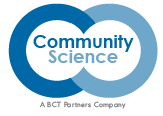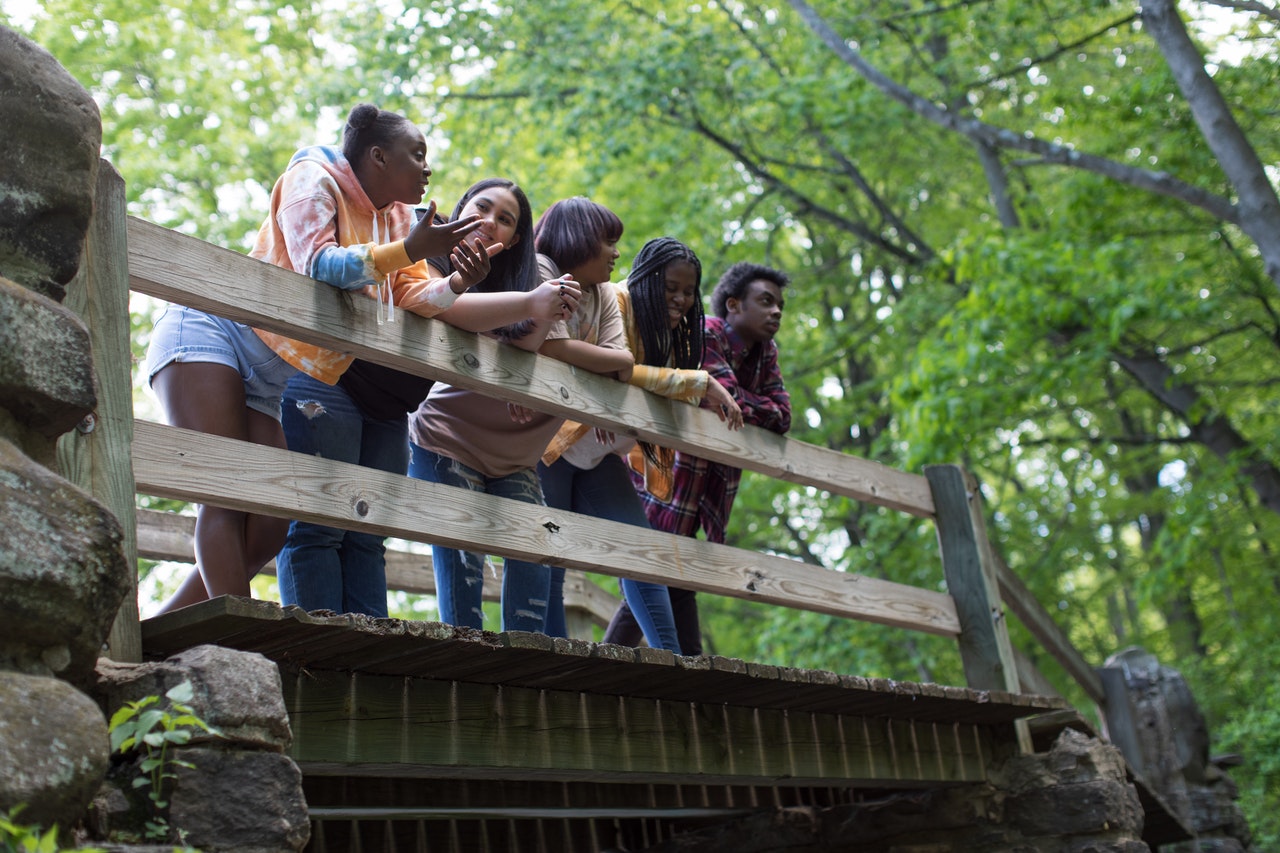As schools recently reopened against the backdrop of COVID-19 variants and relatively low vaccination rates, many school districts have focused on protecting the physical safety of students. This move has left gaps in addressing students’ social and emotional well-being. Community-based organizations (CBOs) can help address these gaps, especially in communities of color and resource-deprived communities disproportionately affected by COVID-19 and vaccine access and hesitancy, which have compounded existing health and economic disparities.
Anxiety amongst both youth and caretakers has intensified, as the Delta variant affects more young people than during the initial COVID-19 surge, especially in states like Mississippi with low vaccination rates, increasing numbers of youth hospitalizations, and, sadly, several high-profile youth deaths. It is vital for schools and communities to support students’ social and emotional well-being, especially students of color, during this tumultuous time.
Some states, such as Colorado and Texas, are leveraging Elementary and Secondary School Emergency Relief (ESSER) funds to partner with CBOs to address the unmet needs of students returning to school. Community Science and Urban Institute’s work as research partners with a local community organization in rural Mississippi— Montgomery Communities United for Prosperity (MCUP) — demonstrates the impact that CBOs can have on building youth resilience and well-being during these challenging times. MCUP hosted virtual youth leadership Institutes, meeting bi-weekly for four months. The Institutes covered a range of topics related to leadership, focusing on building youth capacity to address community issues and giving them a foundational understanding of Black leadership through history and tangible examples of role models.
Here are three core ways CBOs can help support youth returning to school as we face growing concerns about COVID-19:
- Giving youth a forum to individually and collectively express their fears, concerns, challenges, and needs will help them successfully navigate this upcoming school year. CBOs can bring youth together with an open space for discussing how they and their families and communities have been impacted by the pandemic and other ongoing challenges. This is especially key given all the uncertainty the pandemic continues to present. And many extracurricular activities have been put on hold throughout the pandemic, separating the youth further from spaces connected to their identity and support networks. In our work with MCUP, we saw how the Leadership Institutes were able to fill this void and offer the youth a space to connect and feel a sense of community throughout the pandemic. Students shared the challenges they were facing amongst themselves and with staff— such as safety and health concerns and economic impacts of the pandemic— and connected over their shared experience.
- Building and strengthening youth’s capacity and leadership skills so that they are better able to articulate their own needs and advocate for themselves as they return to school they build partnerships with youth, CBOs gain an understanding of what issues youth are facing and how to support them. CBOs that work with youth can also build their capacity through learning and practice. When youth can build ongoing and trusting relationships with program staff, they are more likely to speak up about where and how they need support. Practicing this self-advocacy will help students succeed and ensure that their needs are met at school and beyond during this unprecedented era. Fellows of the Leadership Institutes in Mississippi developed skills in critical thinking, inquiry, and leadership analysis, and by the end of the program were able to visualize themselves as leaders and practice speaking about issues that they felt were important. This skill building helped them feel more confident, and that they hoped to continue to use their voices for good in the future.
- Using the knowledge gained from working with youth to inform their organization’s advocacy efforts in support of youth’s successful transition back to, and completion, of school. When they build partnerships with youth, CBOs gain an understanding of what issues youth are facing and how to support them. CBOs can use their resources to advocate on behalf of students and their families for immediate strategies to address students’ emotional and social well-being, as well as for longer-term educational system reform to improve literacy, numeracy, and critical thinking, and better prepare these students for college and/or the workforce. In their work with the youth, MCUP observed that student needs were not being fully met and that there were opportunities to engage with local school boards to better support students in the future. They hope to continue working with schools to find ways to ground students in their history, strengthen their critical thinking and analysis skills, and provide opportunities to practice public speaking.
Conclusion
As schools readjust to protect the physical safety of students, they will have to continuously try to accommodate for the gaps left in supports of students’ social and emotional well-being. Partnering with community-based organizations that are already working with youth can help fill these gaps by giving students additional opportunities to connect with others, build their capacity to advocate for their own needs, and use resources and networks to organize around youth issues. Schools can currently use ESSR funds to build these partnerships and ensure that students have the supports they need without stretching their staff thinner during this challenging time.
About the Authors
Brandi Gilbert
Dr. Brandi Gilbert has extensive research, evaluation, and technical experience in community resilience, particularly around helping children and families prepare for and respond to chronic and acute stressors.
Brandi joined Community Science from the Urban Institute, where she focused on researching and evaluating disaster preparedness and response initiatives. In her past work, she has led studies on the disaster recovery of youth, examining the long-term impacts of Hurricane Katrina on adolescents and the effects of the 2010 BP oil spill on children and families in Gulf Coast communities. Additionally, Brandi serves in a range of national leadership positions with the American Evaluation Association, including the Graduate Education Diversity Internship Program.
Michelle Revels
Michelle Revels is experienced in research and evaluation design and works on a range of policy analysis, program evaluation, and health communication projects. As a skilled mixed-methods researcher, Michelle designs evaluation studies aimed at improving health and health equity for racial, ethnic and economically disadvantaged communities. She also has extensive experience developing logic models and is a skilled trainer in focus group research, qualitative data analysis, and program evaluation.
At Community Science, Michelle provides evaluation guidance on projects focusing on racial equity, health, education, economic security, and child well-being
Previously, Michelle led chronic disease and emerging projects in the public health line of business at ICF, a strategic consulting and management firm. She worked on projects aimed at improving the understanding of health issues disproportionately affecting vulnerable populations and identifying and evaluating policy and programmatic approaches to reduce those disparities.
Avelyn Heltzel
Avelyn Heltzel brings knowledge and skills in quantitative and qualitative data collection and analysis, particularly around youth leadership and agency.
At Community Science, Avelyn assists with evaluation studies related to youth development, leadership, health equity, and community and systems change. She is also a member of Community Science’s survey team, where she is responsible for programming and disseminating surveys.

